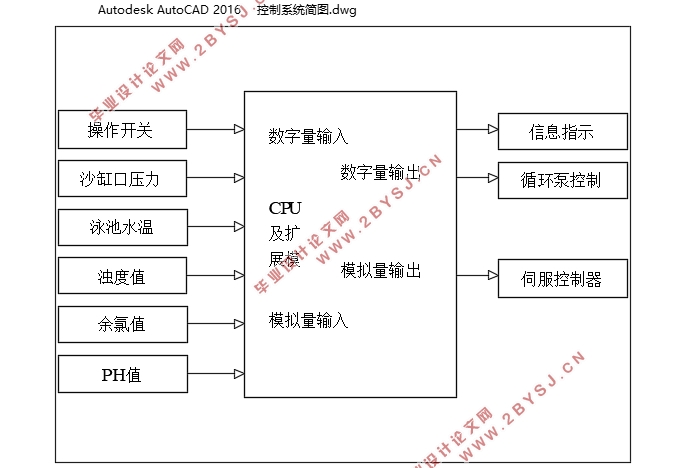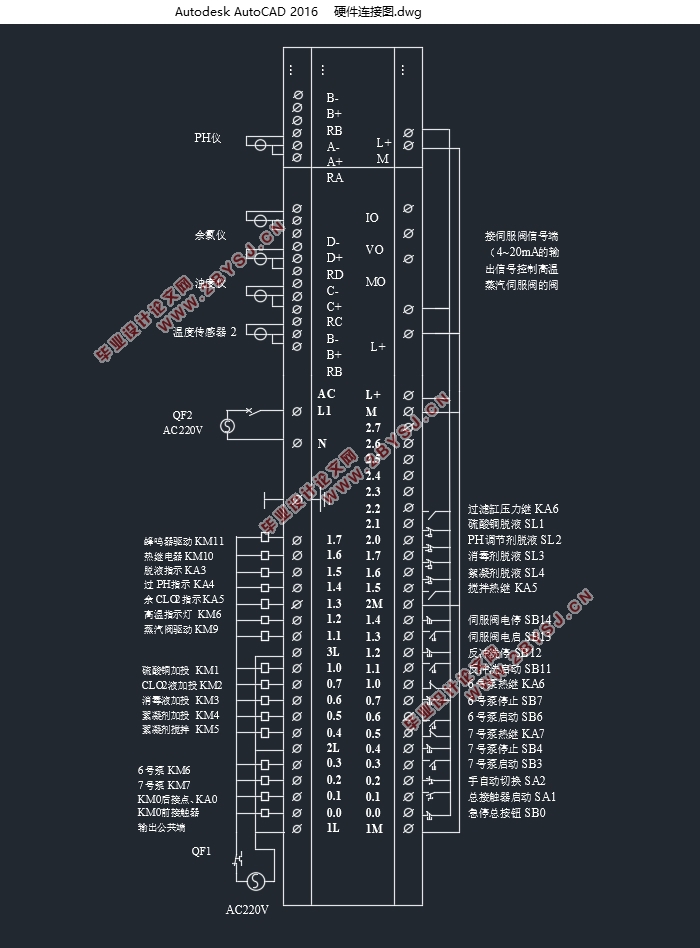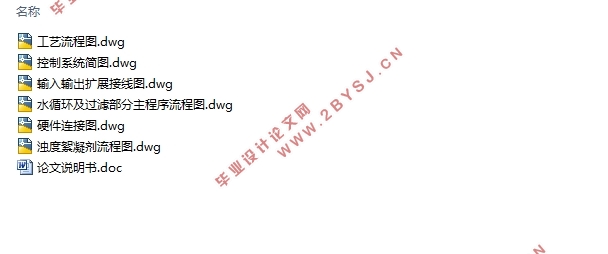水处理自动控制系统的设计(含CAD图)
无需注册登录,支付后按照提示操作即可获取该资料.
水处理自动控制系统的设计(含CAD图)(论文说明书7000字,CAD图6张)
摘 要
随着社会和城市的发展,我们有越来越多的娱乐活动,游泳池成为人们日常生活必不可少的娱乐选择。游泳池的水质对人们生活的影响越来越明显,因此必须加大力度,改善水质监测和加投药控制系统的性能,以确保游泳池水质的清洁。可编程逻辑控制器,简称PLC,是一种工业控制微型计算机。它的编程、操作简单方便,尤其是拥有很高的通用性,使它在工业生产过程中得到了广泛的应用。其中的一个应用便是游泳池水质监测及加投药系统的控制,主要用到的便是他的逻辑控制功能。本文主要介绍SIEMENS的PLC产品以及其对应的软件,并且用它来进行游泳池水质监测及加投药系统的控制编程。由于时间和精力的不足,本文主要以检测游泳池浊度以及自动加投絮凝剂为研究重点。
关键词:SIEMENS PLC, 游泳池,自动控制
Automatic control system of water treatment
Abstract
With the development of modern cities,an increasing number of entertainment projects, swimming pool become an indispensable choice of entertainment of daily life.The quality of swimming pool water performance of the impact on people’s lives becoming more and more obvious ,it must strive to improve the performance of the quality rectifying and reagent adding control system. Programmable Logic Controller,which used to be called PLC for short ,as one kind of industries control microcomputer obtained the wide application in the industrial production process, for its easy programming, easy operation, and so on. One of which is the control of swimming pool water quality rectifying and reagent adding, and the main function of which used is logic control. This article mainly talks about the product of Siemens PLC and software, and use this software to control the swimming pool water quality rectifying and reagent adding.Because of the lack of time and energy, this paper mainly to detect pool turbidity and automatic flocculant with a focus on investment.
Key Words:Siemens PLC,Swimming pool,Water quality rectifying




目录
摘 要 I
Abstract II
第一章 绪论 1
1.1选题背景 1
1.2设计的目的、意义 1
第二章 硬件系统的配置 3
2.1 PLC的选型 3
2.1.1工艺要求 3
2.1.2 西门子PLC S7-200优点 3
2.1.3 CPU及扩展模块的选择 4
2.2硬件设计 6
2.2.1 I/O分配表 6
2.2.2硬件连接图 8
2.3控制系统的工艺流程图 11
第三章 软件系统的设计 12
3.1 水循环控制要求 12
3.2 水质检测及加投药控制要求 12
3.3软件流程图 16
总结 20
参考文献 21
致谢 23
